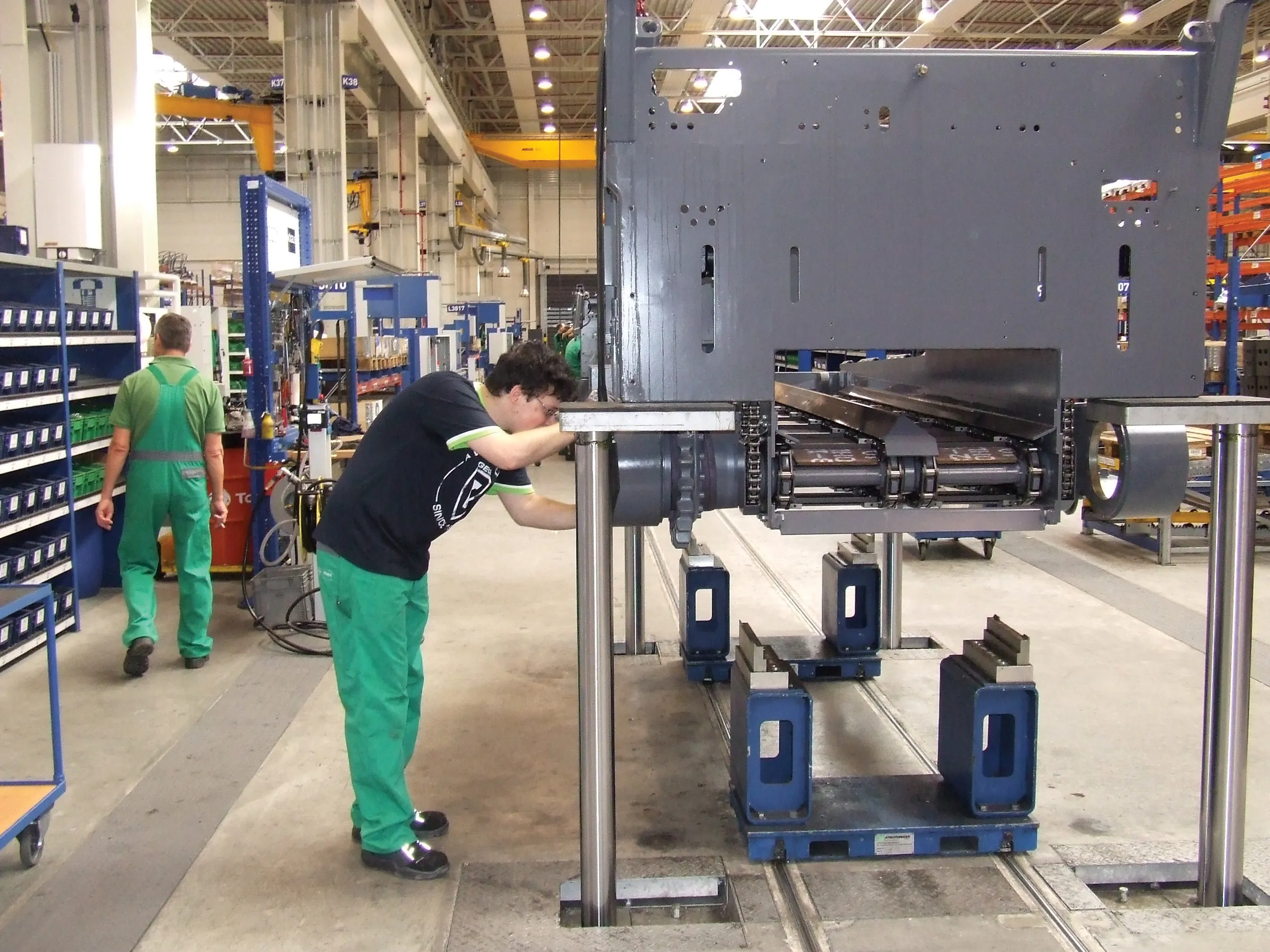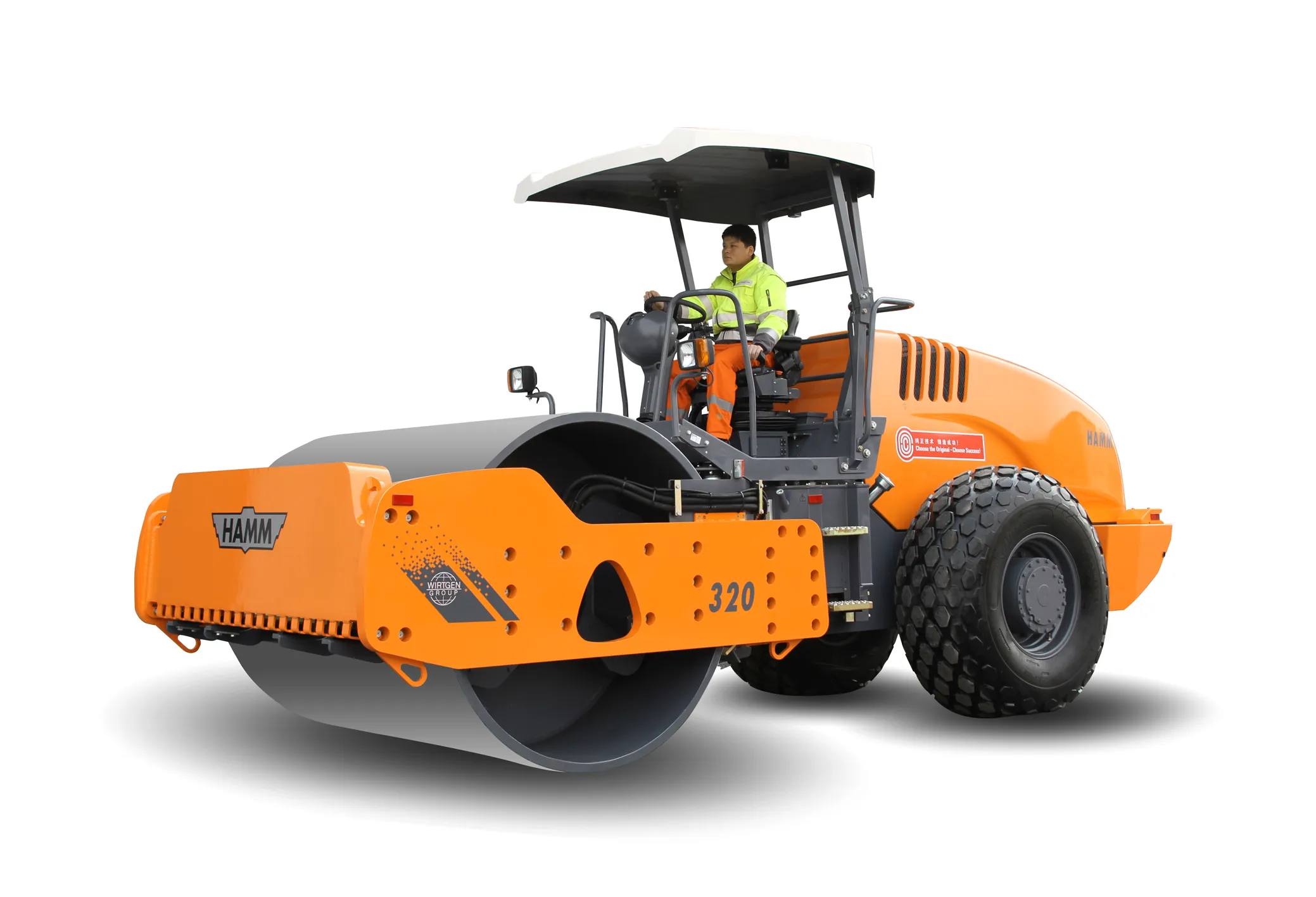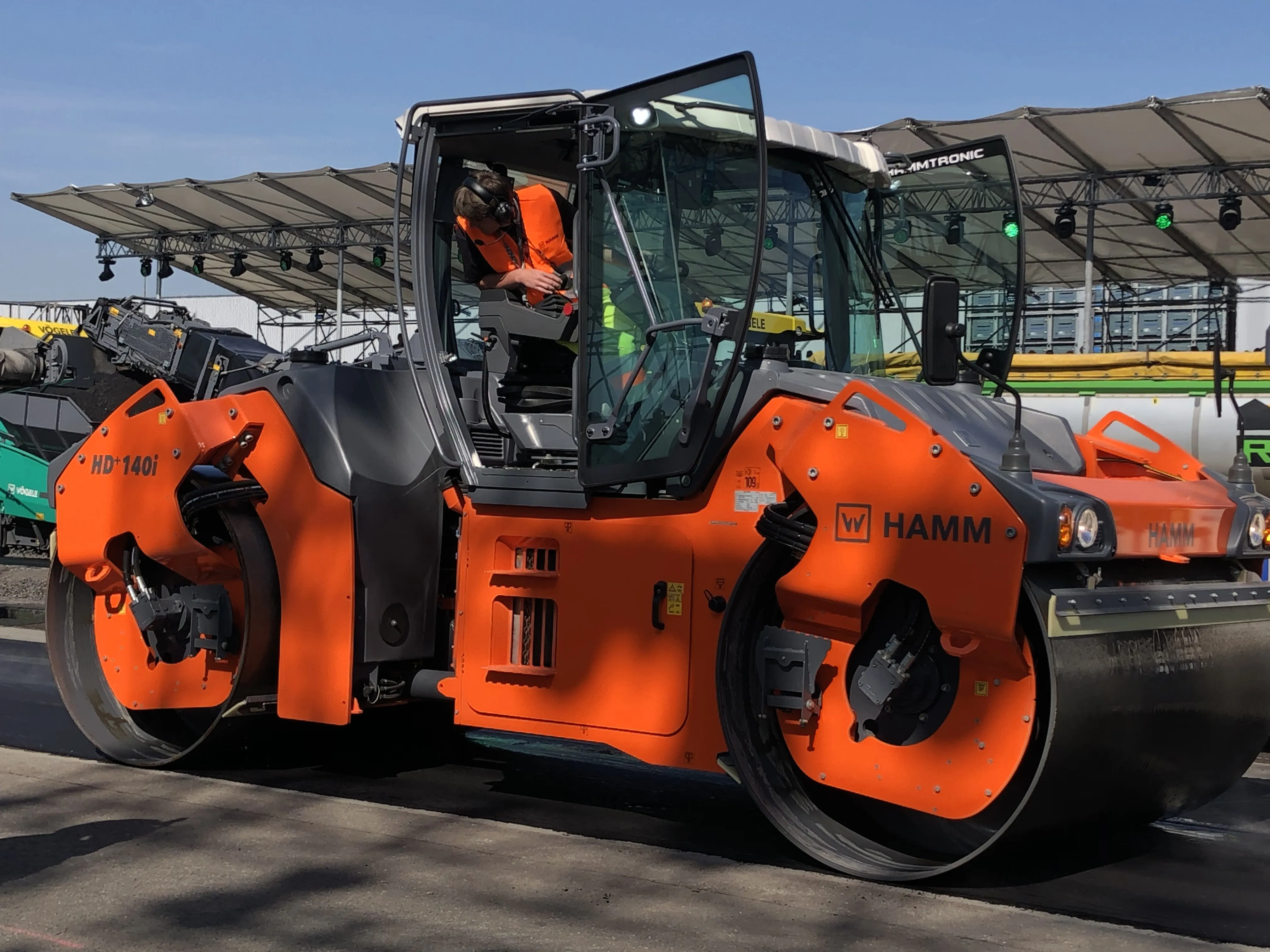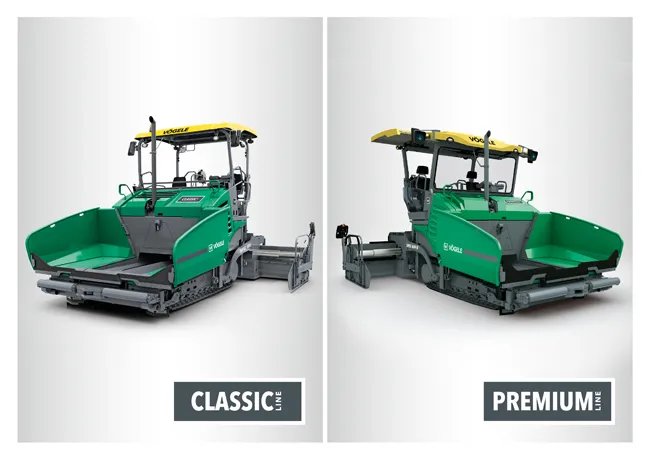German firm Vögele has built the world's largest and most sophisticated paver manufacturing facility - Mike Woof writes. Part of the Wirtgen Group, Vögele has benefited from the massive investment the company has made in all of its major manufacturing operations. The Hamm, Kleemann, Vögele and Wirtgen facilities in Germany have all been improved, with both Kleemann and Vögele now using brand new, purpose-built factories constructed on green field sites.
April 10, 2012
Read time: 4 mins

German firm Vögele has built the world's largest and most sophisticated paver manufacturing facility - Mike Woof writes.
Part of theThis has been a major undertaking for Wirtgen, and all the more of note as the investment in manufacturing capability continued even during the recent economic downturn.
However for Vögele and its sister companies, the advantage will be in the ability to build high quality products efficiently and quickly.
The brand new Mannheim factory is impressive, not only is it the world's largest paver plant, it is also one of the most up-todate facilities for manufacturing construction equipment on the planet.
Costing €100 million, the plant sits on an area of 370,000m2 of which 72,000m2 is covered and builds a diverse array of paver models, so sophisticated flexible manufacturing technology is used to optimise operations.
Laser cutting of steel plates and extensive use of robot welding help ensure quality and the plant uses an estimated 4,900km of welding wire/year and 4,500tonnes/year of steel. To ensure components meet the tight tolerances required, the plant uses high quality machining centres that combine milling and lathe functions. The components are carefully prepared prior to painting to maximise adhesion and the €4.2 million powder coating facility was the largest single investment in the plant, using electro-static application and temperatures of up to 150°C in a 95-minute process.
There are no fork lifts in the factory, which features extensive use of overhead cranes as well as pallets on which sub-assemblies or chassis are moved. With 17 tractors units, 19 screed and two materials feeders in the range as well as 180 grades of steel for example, co-ordinating the product throughput in the plant is a complex task. Pavers are built on different production lines, depending on their size, with subassemblies being fed in at various points. The screeds are built separately in a 10-step process and matched to the tractor units to meet order specifications, with power units also built up off the main production lines. Building the screeds requires very exact boring operations to meet the necessary close tolerances, with grinding and honing processes as well as extra surface treatment also required. Shafts are machined on a CNC lathe, with grinding carried out to make sure these match tolerances also. Induction hardening of critical components is carried out to minimise wear and Hardox steels are used extensively both in the screeds and other areas of the machines subject to high wear. The screed functions are also tested in the sub-assembly area so that any issues can be dealt with, prior to the screeds being fitted to the tractor units.
The assembly of the pavers varies depending on their size and the larger and more complex machines require more work, although the firm emphasises that the same attention to detail is paid to quality for all the units built at the plant. At the end of the production lines is a roofed-over parking area, where pre-delivery inspection checks are carried out. This standardised procedure includes 200 key performance checks on features, such as the steering and the screed for example.
A spare parts store is also located at the site, although this is kept separate from the manufacturing operations as well as the factory personnel. The store holds around 17,000 parts worth around €10 million and provides rapid supply worldwide, handling up to 35,000 orders/year and with 93% leaving the facility on the same day received.








